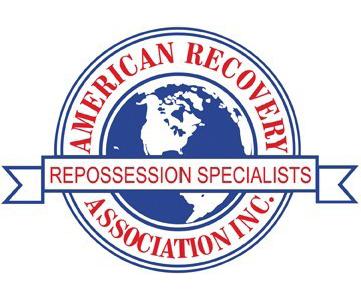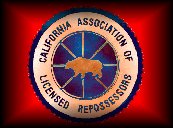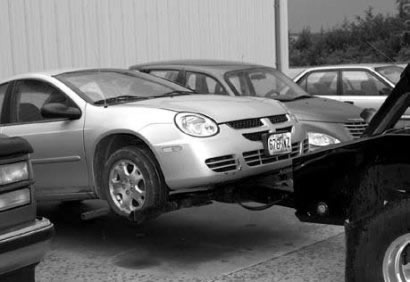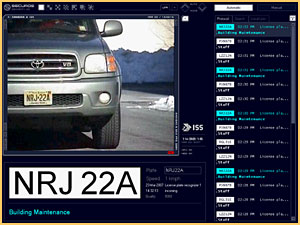Russ DeWitt, Editor
President, Capital Adjusters, Inc.
Past President, Nat'l Finance Adjusters
Member:
American Recovery Association
Recovery Specialist Insurance Group
Calif. Assn of Licensed Repossessors
Certified Asset Recovery Specialist
Certified Recovery Agent
____________________________
____________________________
REPOSSESSIONS & REMARKETING
We are once again seeing a witch hunt against useful technology, this time in the shape of license plate
recognition (LPR) technology. LPR is technology that can read and record
the license plate numbers of cars, whether stationary or while driving
by.
An LPR camera mounted on a police car can read a plate and
instantly compare with an FBI database of plate numbers associated with
criminal investigations or missing persons. The officer gets an
immediate notice and can take appropriate action to solve a crime or
save a life.
An LPR camera used by an asset recovery specialist
works the same way, enabling the repossession of vehicles where the
owner defaulted on a loan or lease, or even the recovery of stolen
vehicles. This kind of LPR-assisted vehicle recovery helps lower
insurance and interest rates for America’s car drivers and owners.
LPR
systems are also used to enforce payment for parking garages and
tollbooths. And you’re seeing more LPR cameras monitoring vehicles
entering private residential communities and high-security sites such as
airports, train stations, water treatment facilities, and nuclear power
plants.
In all these cases, LPR camera-and-compare systems are
helping to solve and prevent crimes, fight terrorism, and reduce costs
for consumers. Despite these benefits, the ACLU published a report
calling for restrictions on LPR technology because of potential misuse
of the data.
The ACLU report used the word “risk” 12 times,
“could” 7 times, and an awful lot of “might” and “perhaps.” Much of the
ACLU’s angst is over historical databases, where police or private
companies are storing the date, time, and location of plates scanned by
LPR cameras on police cars, along highways, or from private entities.
The ACLU fears that historical LPR data might be "used by the police to
track innocent people, or otherwise abused."
But the ACLU says little about how historical LPR databases help maintain public safety and recover vehicles.
Historical
LPR data has helped to find criminals in thousands of cases, including
those responsible for the failed Times Square bombing. One vendor,
Vigilant Solutions, has documented over 750,000 instances where their
vehicle location data helped public safety officials in criminal
investigations involving murder, rape, kidnapping, terrorism, assaults,
and crimes involving children.
Another vendor, Digital
Recognition Network (DRN), allows LPR data access only to state-licensed
professionals and contractors for regulated banks and insurance
carriers. In just the last 4 years, DRN has helped recover over 190,000
vehicles worth over $1.3 billion. That’s $1.3 billion that wasn’t
passed along to car owners in the form of higher interest rates and
insurance premiums.
Still, the ACLU is worried that people might
hack into these historical LPR databases to stalk or harass someone.
But there are already laws against hacking, stalking, and harassment --
regardless of the technology used.
The ACLU is also afraid
because some “federal agencies illegally targeted activists in the civil
rights, anti-war, and labor movements.” But this kind of
discrimination is now illegal. Besides, LPR data is just a plate number
– not the identity of the registered owner. To learn the owner,
someone would have to hack the Department of Motor Vehicles, which is a
federal crime under the Drivers Privacy Protection Act.
Over the
last few decades, some worried about the potential misuse of
technologies such as Caller-ID and mobile phone cameras. Now, these are
features we all expect. Instead of enacting new laws to ban these
technologies, we enforced laws against bad behavior such as unlawful
photographs, stalking, and harassment. Let’s do the same for LPR: focus
on stopping bad conduct—no matter what technology is involved.
The
ALCU should call off their technology witch-hunt. Hysterics in the
public square are never a good way to drive public policy. Establishing
clear boundaries for new technologies – instead of banning them – is the
best course of action.
First published inThe Hill, July 26, 2013
DelBianco is the executive director
of NetChoice (www.netchoice.org), a trade association that represents
e-commerce businesses and online consumers, and campaigns for policies
that encourage innovation and high-tech job creation.
Send any comments to newsletter@repoaustin.com. If you are not currently receiving Capital Adjusters Reports and would like to be added to our email list, just send an email to newsletter@repoaustin.com requesting to be added to our list. To see past issues of Capital Adjusters Reports, click here.
By Steve DelBianco
Back in the 1700’s, places like Salem, Massachusetts got pretty
worked-up about witches. Fear and misinformation drove officials to
undertake horrible acts. But even Salem’s wacky witch hunters didn’t
think it made sense to outlaw the use of brooms, since they couldn’t
tell the difference between the household variety and the witches'
getaway vehicles.
CAPITAL ADJUSTERS REPORTS
Information on Repossession and Remarketing Issues
Aug 2013













